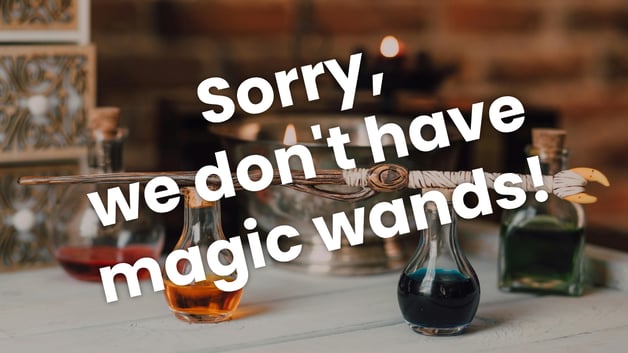Community Cannot Be an Afterthought - It's the Life Blood of Your Game
 By
Sally
·
4 minute read
By
Sally
·
4 minute read
This isn't just a catchy phrase, it's a statement that highlights the necessity of community professionals throughout the game development and publishing process. When this statement is fully realised the full project team can collaborate effectively, building a strong foundation to launch your game on, in turn allowing your community professionals to focus on growth and development, driving objective success rather than instantly being on the backfoot playing defence and working hard to turn things around at great expense.
Let's address a few key areas involved:
1. The Value of Early Integration

The biggest strategic mistake I see studios make is onboarding a Community professional too late. You can't bolt a community onto a finished product. A true Community Strategist needs to be integrated during pre-production to help design the game with community in mind. This allows us to plan for mod support, feedback loops, integrations, shared creative spaces, toxicity mitigation and UGC tools features that become prohibitively expensive to add later. Strategy takes time to build.
Don’t get me wrong though, I am big on efficiency and every project is different, onboarding a community professional full time on day one and have nothing yet to give them more than a vague concept is not a good use of time. Bring them in on specifics, give them a seat at the table at key decision points allow them to consult. I promise you there is nothing more frustrating than rolling on to a project at a point where key features are set, seeing big issues but being too far down the pipeline to do anything, pushing you straight on to ‘defence’ with a player base that wont even exist for maybe a year!
2. Take Community Expertise Seriously

Community teams are sitting on a goldmine of real-time market research, creative solutions, early warning flags, intuition and experience. Treating the input from your experts as a serious, strategic data source is non-negotiable. This means being open to feedback and input from your Community Strategist, even when it challenges current design or marketing plans. Their job isn't to make everyone happy; it's to ensure the long-term health and emotional stability of your player base and therefore contributing towards successfully achieving business objectives.
Oh and yes I have had just as much 🔥 internally as I have from players when some folk take feedback poorly or when I am advocating the player voice as a personal attack. To balance I have also worked with devs that welcome it and fully understand that I am an ally to collaborate with to help guide iteration & improvements that add value for the players.
3. Investment Over Illusion

We cannot expect community teams to achieve success on the bare minimum using a "magic wand." Frankly this attitude is exactly how you lose amazing talent and burnout/break your community staff... expensive on so so many levels.
Investing in the community team, through adequate staffing, allowing enough time to execute, tools, and budget, is a direct investment in retention and product quality. A hamstrung community team is forced into a reactive mode, simply managing crises. An empowered team is proactive, strategically building relationships, validating features, and generating actionable intelligence that saves the studio time and money down the line.
Let's put this into context with story time!
- A community team was brought on late after a specific key fundamental decision about the game has been made too late to change anything about it.
- They warn this decision is going to create a huge reaction and a negative one. They also provide various approaches/options to address this.
- The recommendation being to proactively control the narrative and address the topic head on in a carefully constructed address to provide insight and context. Players will not like it but in large will understand it and appreciate that it's been addressed and they are seen and understood.
- The studio says no and overrules opting to go radio silence instead not wanting to put a spotlight on it especially around launch.
- Sadly this decision causes a HUGE backlash leading to boycotting marketing efforts that was a good chunk of the departments budget and creating a singular focal point.
- The studio is confident it will 'blow over' and is just 'a few toxic actors' in the community, which again the community team warns is not the case.
- The loud core spreads this sentiment to the outer limits of community and creates a negative vibe off-putting to more casual players, influencers pick it up, creating an amplified snowball effect.
- This drags on for years and never disappears as a key negative sentiment driver making devaluing the community strategy that was planned since rolling on to the project, every post flooded with negativity about this one topic, community staff taking daily abuse and unable to respond on the topic.
What's the point of this lovely hypothetical yet very realistic scenario (one I like to refer to as hiding an ugly truth under a very large rug)?
- The community were hamstrung from the get go.
- They then were on the front line dealing with abuse as the public faces of the project silenced and defenceless a really real and frustrating part of the job that we have to work hard to learn how to disassociate emotions from.
- Likely they were required to work extra hours and had to add multiple emergency reports and communications to their work load
- They had to side-line a significant % of their strategy due to capacity and timing
- They were likely pressured to help address the negativity directly and turn things around but the expectation was almost instant results when crafting a completely additional recovery strategy and executing a recovery takes a long time, repairing trust and showing improvement with action to the point players feel the turnaround is a marathon not a sprint.
- Many influencers do not want their name associated with the project in this state disarming community outreach efforts and collaborations with influencer & marketing teams.
.... I hope you get the point and all this can very quickly wear your community team down, stretch them so thin they are thread-bare, out of necessity, passion and pride in work working 60hrs on launch week and BOOM they are all burnt out and probably trying to shrug it off. this is bad for business and importantly bad for your staff, which in time leads to worse for the business.
Community is key, the lifeblood of your game, see your community professionals as the heart & enable them to keep the lifeblood flowing and the pulse strong and healthy for years to come.
In summary, success requires treating the Community team, whose expertise is a strategic data source, as an early-stage development partner—not a late-stage marketing task—to proactively design for player loyalty and ensure long-term product health.